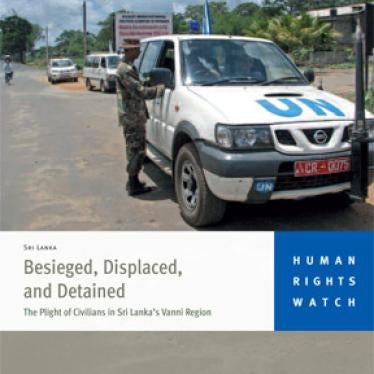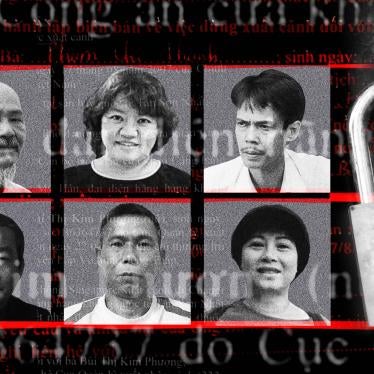(New York) - The killing of a prominent newspaper editor today and the bombing of a private television station on January 6, 2009, highlight the Sri Lankan government's failure to stop violence against the media, Human Rights Watch and the International Commission of Jurists (ICJ) said. The groups said that past investigations into attacks on journalists have led nowhere, and that the government should act quickly to bring the perpetrators of the attacks to justice.
Unidentified armed men in close proximity to a security forces checkpoint shot Sunday Leader newspaper editor Lasantha Wickremetunga, a senior journalist acclaimed for his investigative reporting, during his morning drive to work in Colombo today. He died shortly after. On January 6, a dozen heavily armed men badly damaged the studios of the private Maharaja Television station on the outskirts of Colombo by detonating Claymore landmines and grenades.
"The fact that these attacks were carried out in broad daylight against vocal critics of the government without any arrests or law enforcement action adds to the climate of impunity in Sri Lanka," said Roger Normand, Asia-Pacific Director at the ICJ. "The government must not only condemn these heinous acts, but take effective measures to bring the perpetrators to justice."
Wickremetunga's in-depth investigations into corruption and nepotism in the Sri Lankan government frequently made him the target of intimidation attempts and lawsuits. Maharaja Television came under attack after state media labeled it "unpatriotic" for its coverage of the government's recent military campaigns in the war with the separatist Liberation Tigers of Tamil Eelam (LTTE). On January 2, 2009, government forces captured the LTTE administrative center in the northern Vanni area.
"Sri Lanka prides itself as a functioning democracy. Yet media freedom, a vital pillar of democracy, has increasingly come under attack," said Brad Adams, Asia director at Human Rights Watch. "The government should not take its recent military victories as a signal that it can stifle dissent."
The freedom to express views opposing those held by the government has come under severe threat in Sri Lanka. A prominent ethnic Tamil journalist, J.S. Tissainayagam, a Tamil publisher, N. Jasiharan, and his wife, V. Valamathy, were arbitrarily arrested in March 2008 and six months later charged under the state terrorism laws. These cases have raised serious due process concerns.
On September 27, 2008, unknown assailants flung a grenade into the home of J. C. Weliamuna, a lawyer who is executive director of Transparency International Sri Lanka, an anticorruption group. Weliamuna is counsel in several fundamental rights cases involving torture, extrajudicial killings, and enforced disappearances. So far, no one has been arrested for this attack.
Impunity for human rights violations remains a disturbing norm in Sri Lanka. The government's unwillingness to hold accountable those responsible for serious violations has fostered an environment in which journalists have come under increased attack. In its 2008 press freedom index, the media group Reporters Sans Frontiers (Reports without borders) ranked Sri Lanka 165 out of 173 countries.
Article 14 of the Sri Lankan constitution provides for freedom of speech. The rights to freedom of opinion and expression are protected under article 19 of the International Covenant on Civil and Political Rights, to which Sri Lanka is a party.
However, since 2006 the government of President Mahinda Rajapakse has increasingly intimidated and tried to silence the media, nongovernmental organizations, and others with independent or dissenting views with regard to the government's military policies and human rights practices. Senior government officials have attacked such critics, calling them supporters of the separatists and traitors.
"The Sri Lankan government should ensure that perpetrators of rights abuses are brought to justice," said Adams. "For too many years and in too many cases, those who commit violence have gone unpunished while those who dared to speak have paid with their lives. This culture of impunity has to end now."







